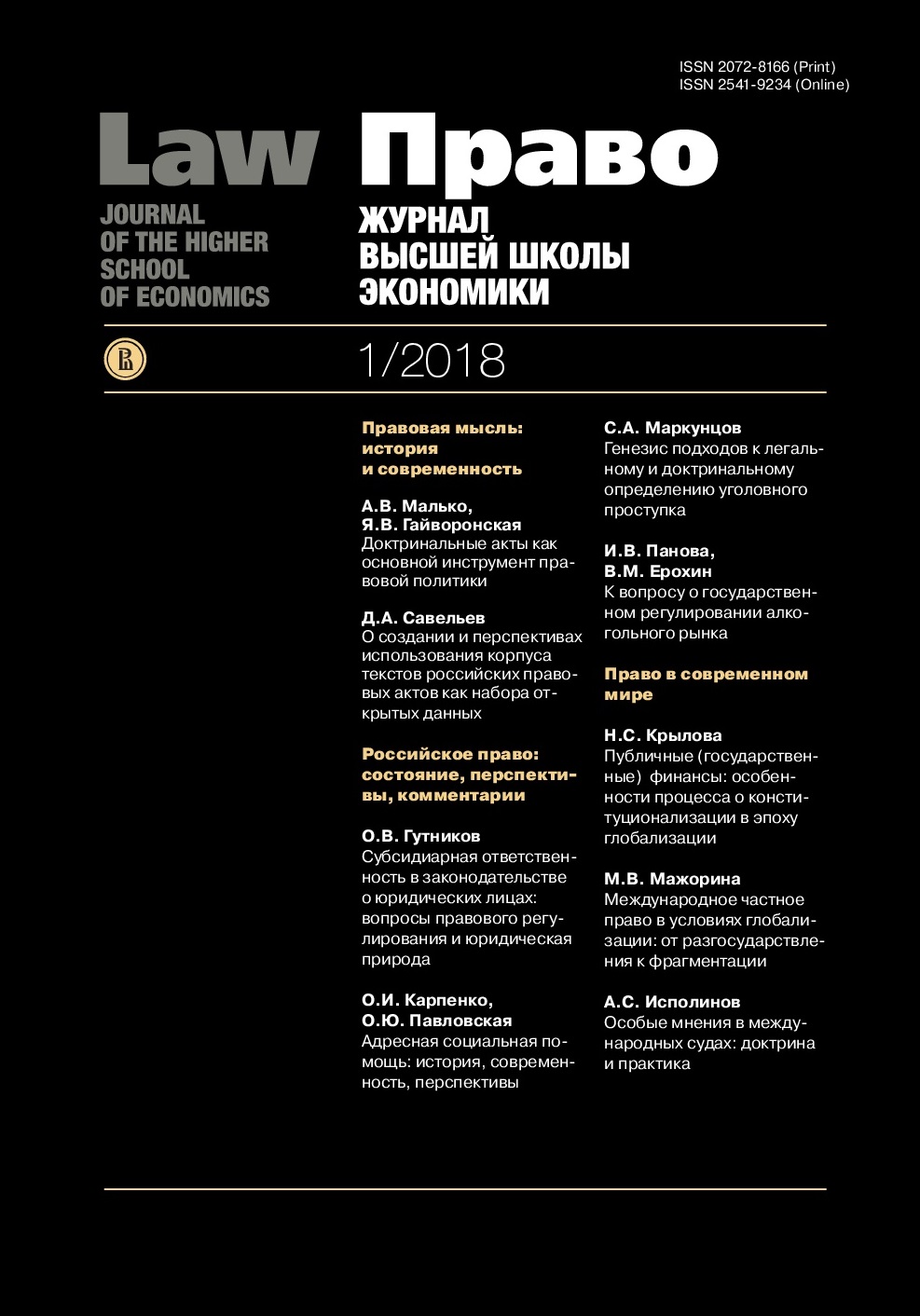Joint Physical Custody or Determining Place of Residence of the Child on a Parity Basis?
Abstract
The article examines the relationship that arises between parents in their separateresidence, regarding the definition of a child’s place of residence in court in the absenceof any appropriate agreement.The aim of the paper is to identify the main features of thelegal institution of a similar foreign “joint custody” of parents in the Russian legal system.For the research, the following methods were used: sociological, modeling, comparativelegal one. The court decision to determine the place of residence of a child with onlyone of the parents is in a certain conflict with the principle of their equality. Besides, thisimplementation is difficult in practice, since the court’s ability to obtain reliable informationabout relations within family is extremely limited. In the judicial practice of disputes overthe determination of the place of residence of the child, there is an unjustified bias infavor of the abandonment of the child with the mother, which, of course, does notcomply with the rules and principles of family law. Family researchers — sociologistsand psychologists note the detrimental nature of this approach and, based on foreignexperience, propose to establish principle of “joint physical custody” of parents duringtheir divorce in Russia. In the context of the Russian legal system, it is proposed to checkthe corresponding relations as the definition of the place of residence of the child on aparity basis. In addition, it is necessary to determine the conditions (relating to the will andactual circumstances) in which the application of such a rule is possible. Such conditionsshould be: the desire of each of the participants in the dispute to engage in the upbringingof the child; presence at them the relations developed with the child; absence of thefact of deprivation of parental rights or restriction in them; the presence of each of theparents the opportunity to engage in the child’s time; their place of residence should notbe removed from the center of the existing interests of the child. Actions that prevent theestablishment of this regime (for example, the change of residence of a parent living witha child without justification by his interests) should be considered an abuse of the law. Theapplication of this regime does not contradict the current legislation; therefore, there isno formal need to introduce changes into the Family Code. Nevertheless, such changesare advisable, and since such an approach is fundamentally new for our legal system andsince there is a need to define clearly the conditions for its use by the judicial authorities.
Published
2018-03-03
How to Cite
ZykovS. (2018). Joint Physical Custody or Determining Place of Residence of the Child on a Parity Basis?. Law Journal of the Higher School of Economics, (1), 92-111. https://doi.org/10.17323/2072-8166.2018.1.78.92.111
Issue
Section
Russian Law: Condition, Perspectives, Commentaries


















